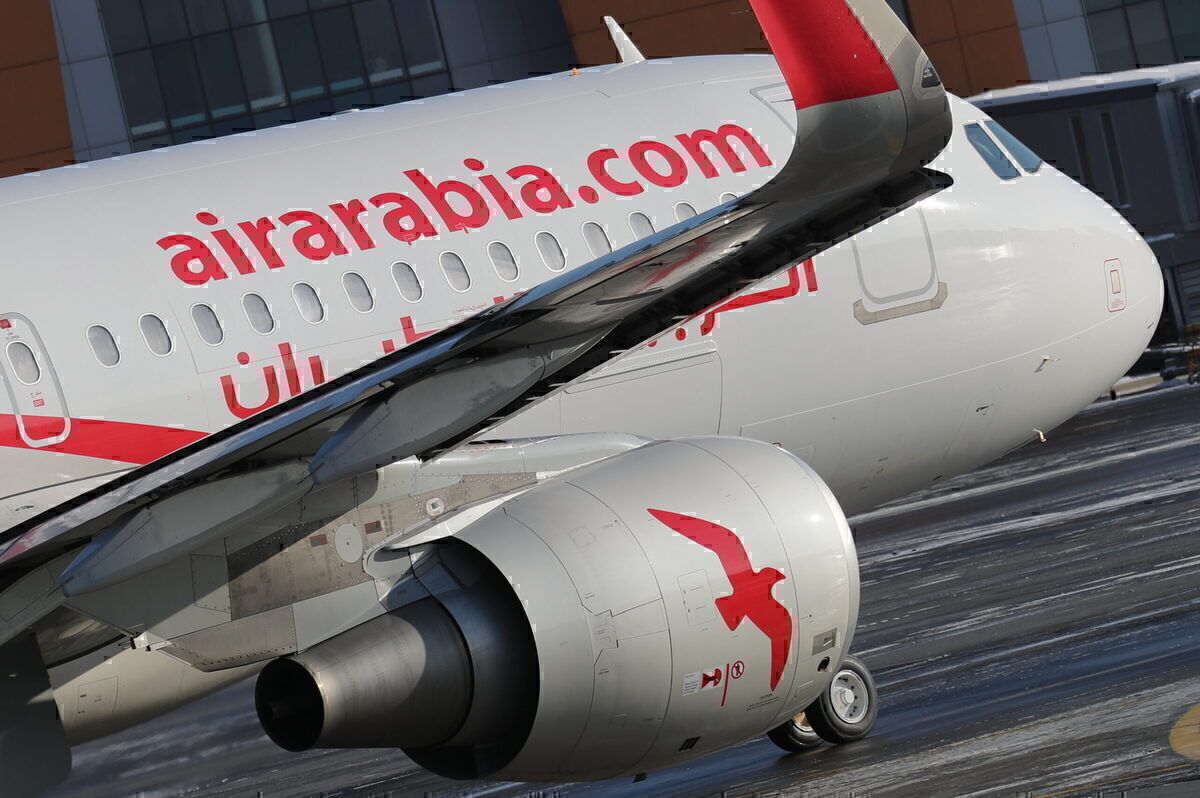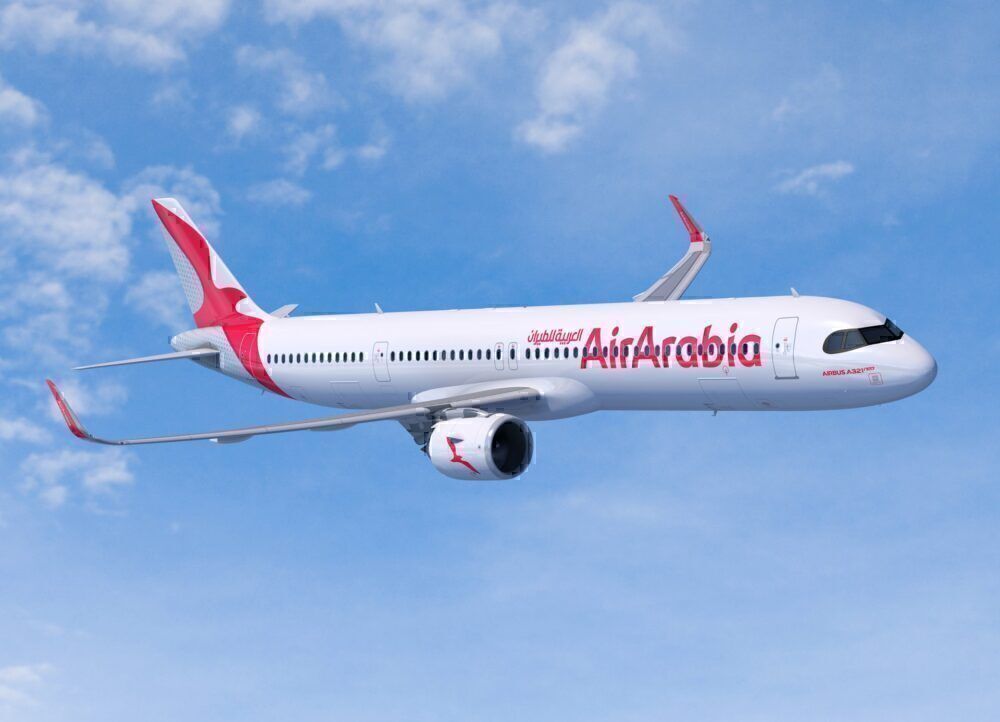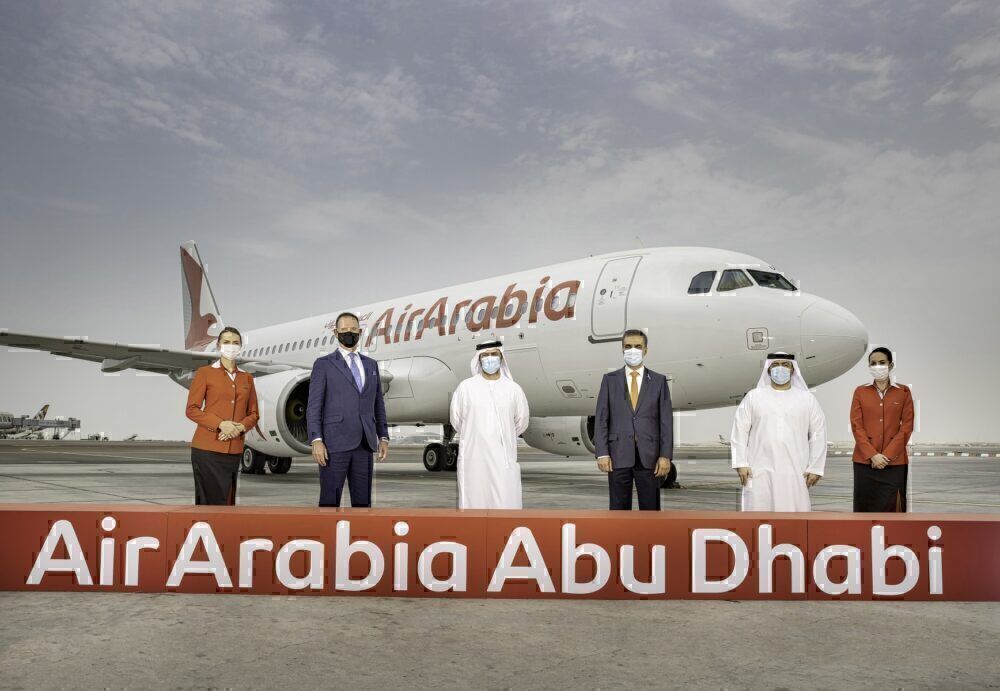Air Arabia has a significant pending order with Airbus, including for 20 of the very long-range A321XLR. Altogether, 120 aircraft are due to be delivered in the coming years, but its CEO Adel Ali says there are no plans to cancel or defer any of these planes. He remains confident about Air Arabia’s position in the market, which has only further been complemented by its joint venture with Etihad to form Air Arabia Abu Dhabi.
No cancellations or deferrals on the cards for Air Arabia
Air Arabia operates some 57 aircraft during normal times, most of which are the A320-200 with just five A321LR as well. One more LR is due with the airline imminently, but it has a huge order on the books with Airbus too.
At the Dubai Air Show last year, Air Arabia placed an enormous order for 120 aircraft. This is split between 73 A320neos, 27 A321neos and 20 of the forthcoming A321XLR. In this age of airlines deferring and canceling future deliveries of new aircraft, it would be understandable if Air Arabia were to back out of this contract.
However, at the present time, it has no plans to do so. Chief Executive Adel Ali spoke about the order at CAPA Live this week, saying,
“We have not spoken to Airbus yet, because there was no need to. The order deliveries are planned at the moment for 2024. Every airline and every expert in the industry is saying the market should recover by then. Personally I believe the market will recover much faster.
“With regards to Airbus, we have time. So, if we needed to move those orders in either direction, we can take the benefit of that time. And I think the order we've put in, as it stands, I believe we will need those airplanes for our expansion and for the business expansion post-COVID.”
Ali said that capacity had been steadily picking up at Air Arabia. The airline has around 18 aircraft in service at the present time, although performance varies across different geographies. Morocco, he noted, is performing very well, at about 80% of previous capacity, while Egypt is sitting at around 60% of 2019 levels. The UAE, it seems, is harder to restart, with current capacity at about 40% of what it was pre-COVID.
Stay informed: Sign up for our daily aviation news digest.
Not worried about Wizz
One of Air Arabia’s biggest moves of the year was to launch its joint venture airline with Etihad, Air Arabia Abu Dhabi. It was to be the first low-cost carrier flying out of Abu Dhabi, and was hotly anticipated with those looking to connect into Etihad’s global network of destinations, as well as those hoping to hop around the Middle East more affordably.
The airline began flying in July, initially to just a couple of destinations in Egypt. Since then, it’s added more destinations, including Cairo, Muscat and Kathmandu. So far, it has a monopoly on low-cost flights out of Abu Dhabi, but all that is about to change.
Eastern European powerhouse Wizz is poised for the first flights of its own Abu Dhabi airline. Wizz Air Abu Dhabi should have taken off already, but has been delayed as the COVID crisis made launch somewhat difficult. Nevertheless, it received its AOC three weeks ago and is preparing to launch operations next week.
Ali remains unshaken by the threat of competition at his new base. He said,
“So far, I have not had the opportunity to meet anybody from Wizz, but I believe they've taken an office next to next door to ours. So, they are our neighbor in Abu Dhabi! Is there room for two LCCs at the same time? Time will tell.
“They still have not started operations and I'm sure at some stage they will. I hear that they have the AOC at the moment. And I think if they add more business into Abu Dhabi Airport and into tourism, it’s all good as well.
“It’s a very respectable airline, it’s a good size, it’s very well run in East Europe … We have been in this market in the UAE for 17 years, and hopefully, we also can survive this and do what needs to be done.”
Ali presents a confident front in the face of heightened competition, and maybe he has a point. Perhaps simply replicating the Wizz model in the UAE isn’t all the airline needs to think about, and on that front, Air Arabia has the benefit of a great deal of experience.



